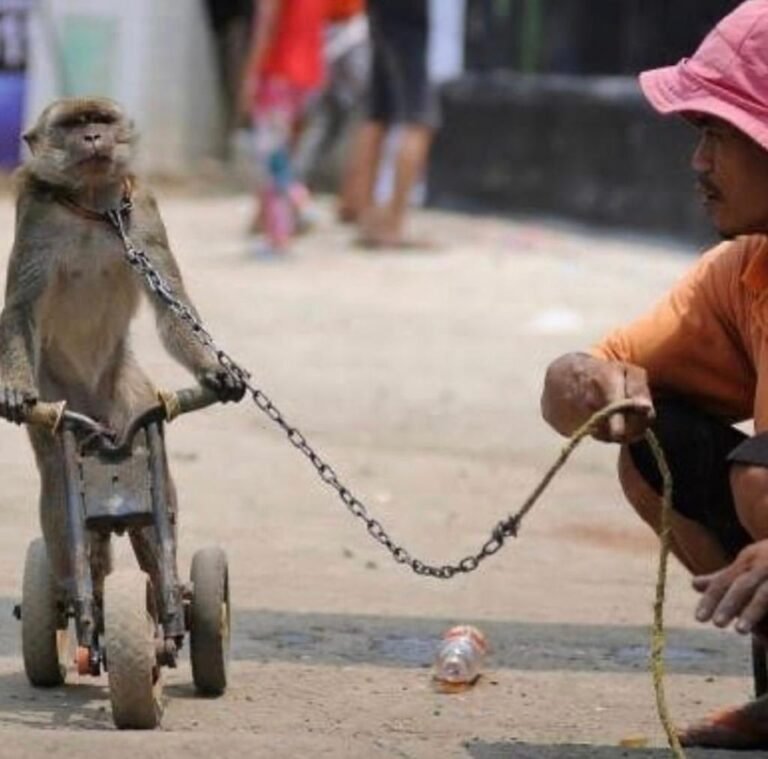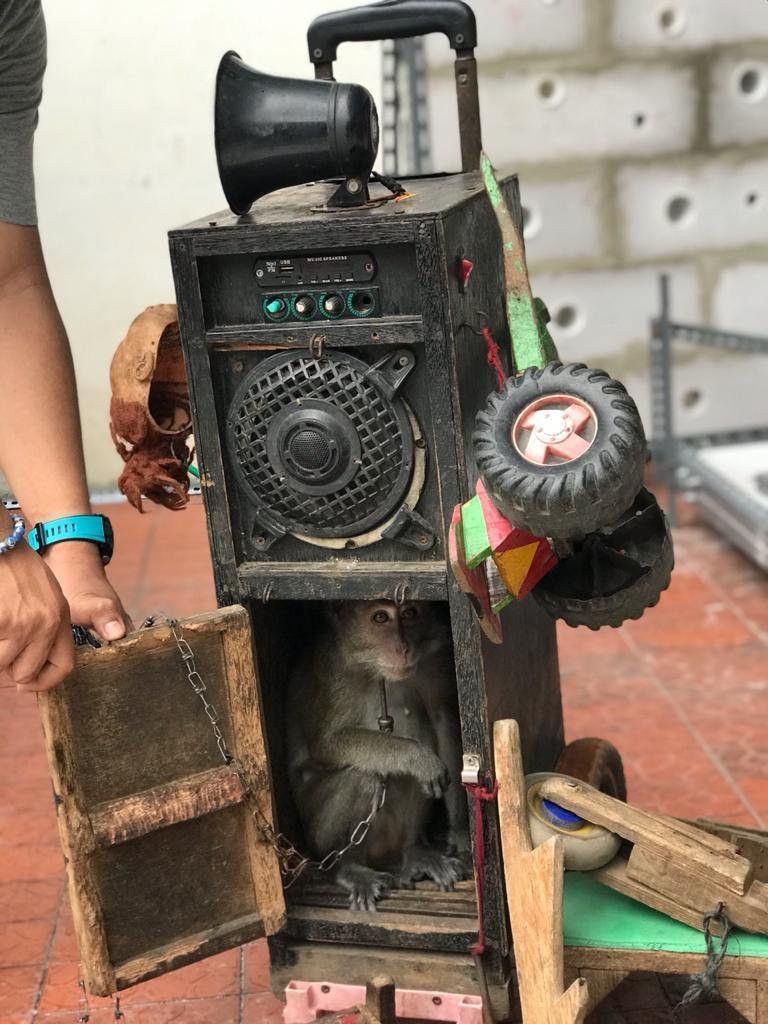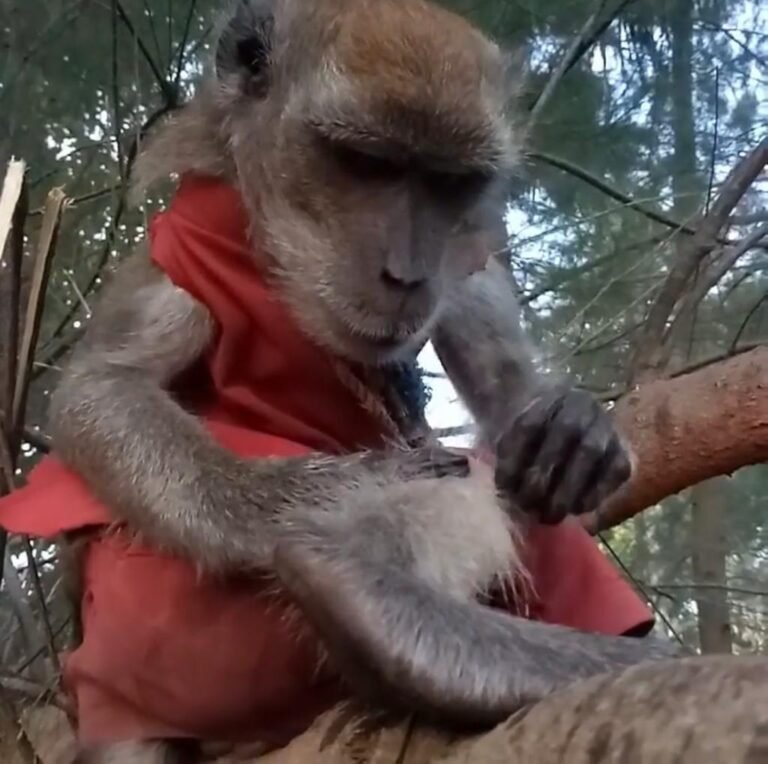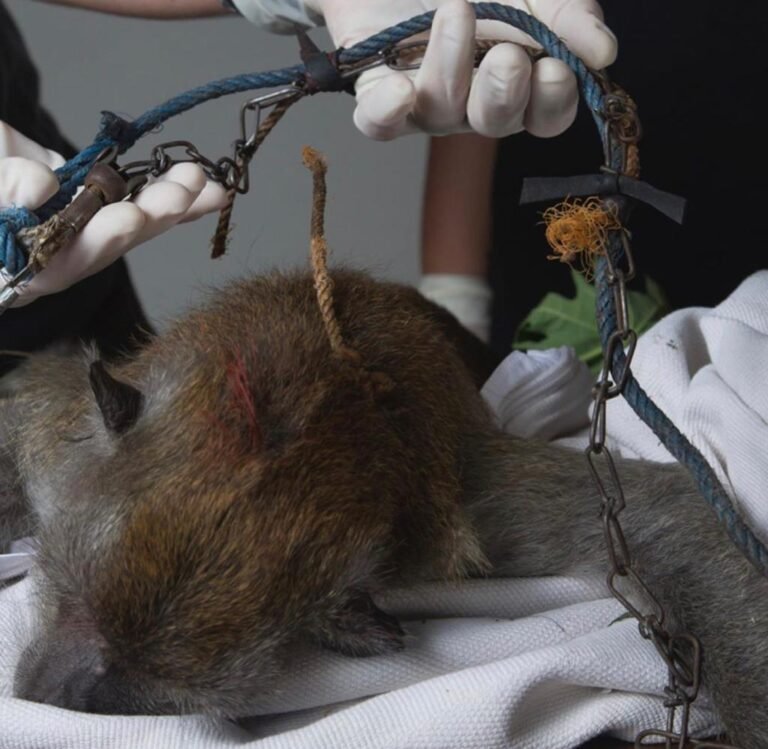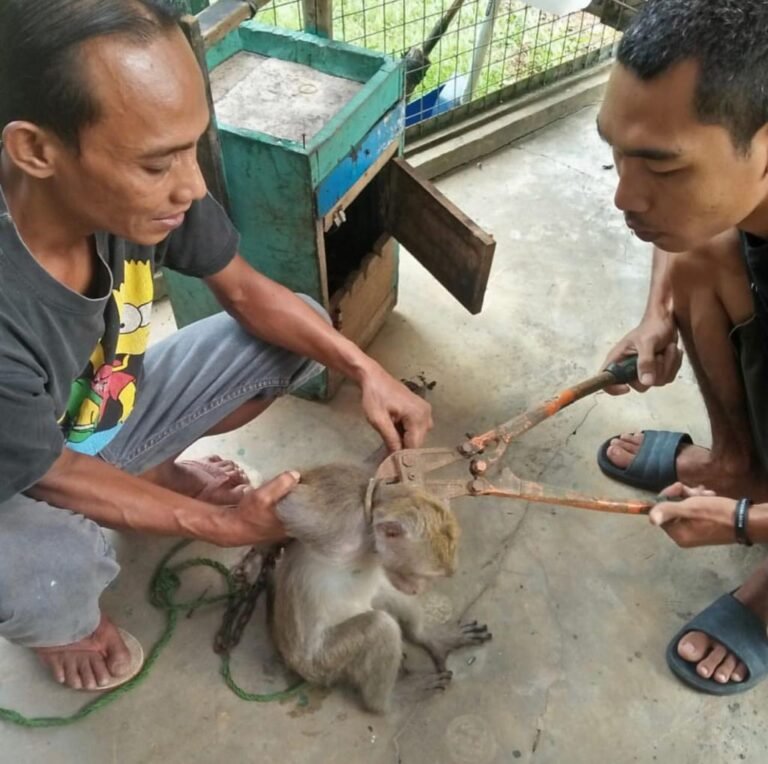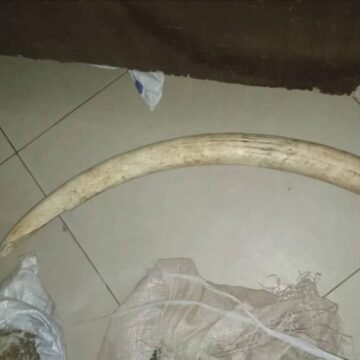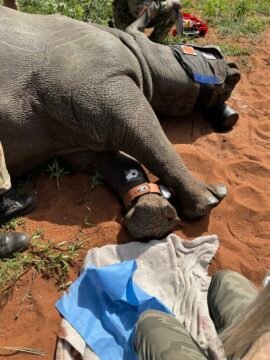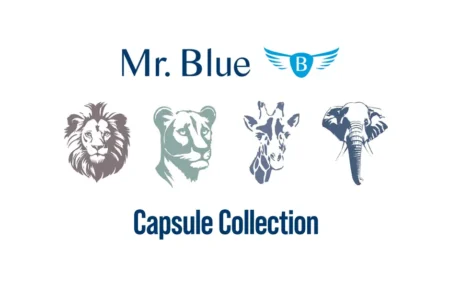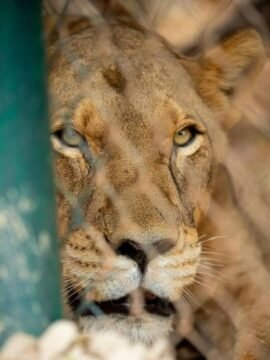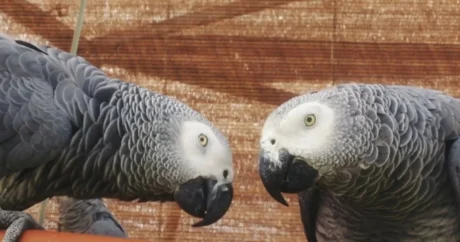The goal of this project is to ensure the implementation of enhanced welfare standards for Indonesian primates, with an initial focus on ending the exploitation of long-tailed macaques. Therefore, this project has a major focus on the dancing monkeys. This inhumane practice consists of juvenile macaques being forced to perform (dance, ride bikes etc) in the loud and crowded streets of Jakarta.
Wild At Life Project
Bebas Topeng Monyet
"Dancing Monkeys" Rescue & Rehabilitation
Activity status: Ongoing
Area of Activity: Jakarta, Indonesia
Known as “Topeng Monyet”, long-tailed macaques are extremely popular in Indonesia as they are used as dancing monkeys. Wild at Life e.V. and their partner Jarkata Animal Aid Network (JAAN) are working to end this practice.
Project Background
Each year, thousands of long-tailed macaques are bred and captured from the wild for sale in Jakarta where they face a life of exploitation and cruelty. The three common fates that await these primates are:
- Pet market (including dancing monkeys)
- Research (exported to labs)
- Food (Indonesian-based Chinese restaurants)
Over the years, JAAN observed a worrying increase in the use of these monkeys on Jakarta streets and has actively campaigned and lobbied to end the exploitation of macaques in Indonesia, in particular macaques used for the cruel ‘Topeng Monyet/Dancing Monkey’ trade.
Young macaques are caught from the forests by poachers and sold either directly by the trapper/poacher for 25.000 IDR (1,50€) or in Jakarta for a higher price of 70.000 IDR (4,26€). Macaques are sold in pet shops, bird markets, and even in front of shopping malls by street vendors. Baby macaques attract people because they are cute and cheap to purchase.
The macaques are almost always seen on short chains on the street and often in front of the owner’s house. As they grow, the chain grows into their skin, causing infections and tetanus. Macaques also form potential health hazards in urban areas due to the likeliness of disease transfer – something that we have experienced and are familiar with.
As a species listed under appendix 2 of the Convention on International Trade in Endangered Species of Wild Fauna and Flora (CITES), macaques should be traded with permits only. This means local traders are obligated to obtain a permit from the Forestry Department, which many of them don’t. In Jakarta alone, we encountered many cases where macaques escaped from their chains, our team is called to capture and relocate the primate.
Steps taken
JAAN was investigating the Topeng Monyet industry, uncovering information such as – where were they captured originally, where were they kept in Jakarta, who owned the monkeys, who trained the monkeys etc.
Since macaques are still not protected in Indonesia, the forestry department was uncooperative and uninterested in following up on our requests to ban Topeng Monyet. The process of catching the baby monkeys from the wild is in fact illegal, but legal action has never been undertaken by the forestry department against the capture of long-tailed macaques from Javanese and Sumatran forests. The local government and agriculture department was more interested in the ban and meetings continued with them while striving to get to former governor Fauji Bowo, as a ban on Topeng Monyet in Jakarta would be the most realistic goal of our efforts.
After many letters, finally, a statement was obtained from former governor Fauji Bowothat that Topeng Monyet should be banned in Jakarta, and we could count on help from the local government to confiscate monkeys from Jakarta’s streets.
40 Dancing Monkeys were confiscated with the assistance and cooperation of local government officials and police!
The monkeys’ “owners” were only given a warning and then set free. The monkeys and all attributes were seized.
What happens then?
The confiscated monkeys went through quarantine before being moved to specially-built socialization cages. The socialization of the monkeys was a hard and long process because they were traumatized animals, victims of the illegal wildlife trade. Thankfully, the team working with them are experienced in the handling and behaviour of macaques.
20% of the monkeys confiscated were found to have tuberculosis, and even hepatitis and leptospirosis were found in two individuals. This high proportion of monkeys carrying dangerous diseases proves the deadly potential of zoonotic diseases. We believe that the primates originally obtain these diseases from humans first, before spreading them to the public. So any child that came near the dancing monkeys was not only exposed to a bad form of education but also to various dangerous and deadly diseases.
The ban on Topeng Monyet has expanded from Jakarta to Bandung and Solo. We hope to see a permanent end to this practice all across Indonesia and will continue to campaign until done so.
Together we can do this!
We will continue to campaign for a total ban on keeping primates as pets and will continue to rescue, rehabilitate and release these primates back to the wilderness.
No results found.
This project is carried out in the following activity areas
Spread the news!
Help us increasing social commitment in saving endangered wild species. Express your support by sharing this article in your favorite social media channel.
Facebook
Twitter
LinkedIn
Pinterest
WhatsApp
Email
Most recent news
Project update
June 30, 2025
Recently, the Victoria Falls Anti-Poaching Unit achieved a significant success with the arrest of five suspects found in possession of illegal wildlife contraband, including ivory, pangolin scales, and snares. Thanks to our expanding informer network, crucial intelligence was quickly acted
Project update
June 21, 2025
The rhino conservation of Wild at Life e.V. and Insimbi Legacy Projects continues to strengthen efforts to protect White Rhinos in the Limpopo region of South Africa. Operating on a 5,000-hectare reserve in the Capricorn District, this joint mission combines
News
June 2, 2025
Wild at Life is a dedicated wildlife conservation NGO working tirelessly to protect endangered species and their habitats. With a focus on combating wildlife trafficking, ending canned hunting, and preserving biodiversity, Wild at Life’s mission is to create a world
Project update
April 27, 2025
A few years ago, together with our partner, the Association for the Protection of Fauna and Flora, we conducted a distressing investigation at a zoo in Burkina Faso. The 112-hectare site was home to numerous endangered species, many of them
News
April 9, 2025
This article reports on the successful repatriation of 34 African Grey Parrots that were illegally smuggled from Africa to Spain. The parrots were intercepted in Spain, and Turkish Cargo facilitated their transportation back to their natural habitats free of charge.
News
April 9, 2025
The article details the rescue and repatriation of 34 African Grey Parrots that were illegally trafficked from Africa to Spain. In collaboration with Turkish Cargo, which provided complimentary transportation, and various international organizations—including Wild at Life e.V., the Spanish Ministry
Stay informed!
Subscribe to our newsletter to keep up to date with our activities!
By subscribing you consent to our Privacy Policy

